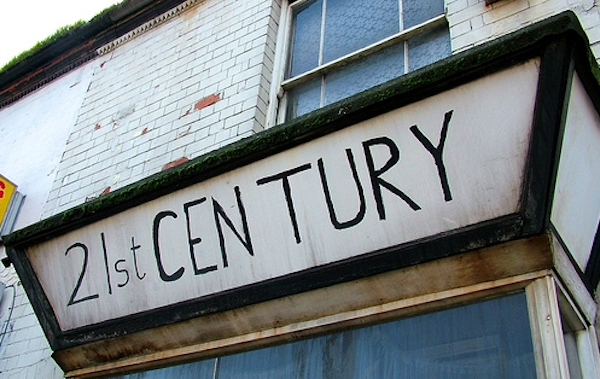dmlcentral.net
A Thought Experiment: Why grade? Why test? What if?
Let’s try a thought experiment. Let’s assume we live in a culture where all forms of educational achievement tests have been banned and no one is allowed to assign a letter or numerical grade for anything. How would we evaluate what students are learning? How would we decide which teachers were doing their job effectively or how they could be more effective? Would there be objective (i.e. impartial, unbiased) ways of determining who was the smartest student and who needed help? And why would we want or need to know that? Without testing, would being the best be a useful question? Or, as a mathematician would ask, would that question be an interesting one (one that could yield an answer that wasn’t simply a circular restating of the question)? How would the content and methods of education change if assessment by means of testing and grading was banned?… more
Educating for the Future, Not the Past
Historian Robert Darnton has argued that we are currently in the fourth great Information Age in all human history. The first information revolution came with the development of writing in 4000 B.C. Mesopotamia. The second was facilitated by the invention of movable type (in 10th Century China and 15th Century Europe). The third was marked by the advent of mass printing (presses, cheap ink and paper, mass distribution systems, and mass literacy) in late 18th Century Europe and America. The current Information Age is the fourth such era, marked by the development of the Internet and, more importantly, the World Wide Web in 1991 with its open access structure that makes possible the interconnection of all the world’s knowledge to all the world’s people. The point of this historical perspective is to remind us that the last decade has seen transformations of a kind notable even from the long perspective of the record of human history. Our Information Age has been the most extensive and rapid in human history, structurally altering traditional economic and political arrangements on a global level and, at the same time, restructuring communication, interaction, publication, and authorship in all currently available media. Is it any wonder that many of us are wondering what will happen next—or asking how best to prepare ourselves for what comes next?… more
When Is an Art Museum a Workshop? A Field Report from Korea
Earlier this month, I participated in the Digital Natives Workshop hosted by KAIST, the MIT of Korea, and attended by researchers from the U.S. and across the Pacific Rim. My talk on adolescence and the science of attention (entitled “The Kids Are All Right”) has been recorded along with the other presentations and posted on Google Wave by Dave Sonntag, one of the organizers. I also live-blogged at www.hastac.org. After the workshop, we took the three-hour bus trip from Daejeon to Seoul where we had a field day at the Samsung D’Light interactive showcase and then, on Saturday, were part of a Bar Camp at the high-tech Daum University, in a room that came with a slogan: “Beyond Learning.” I’m still pondering that.… more


